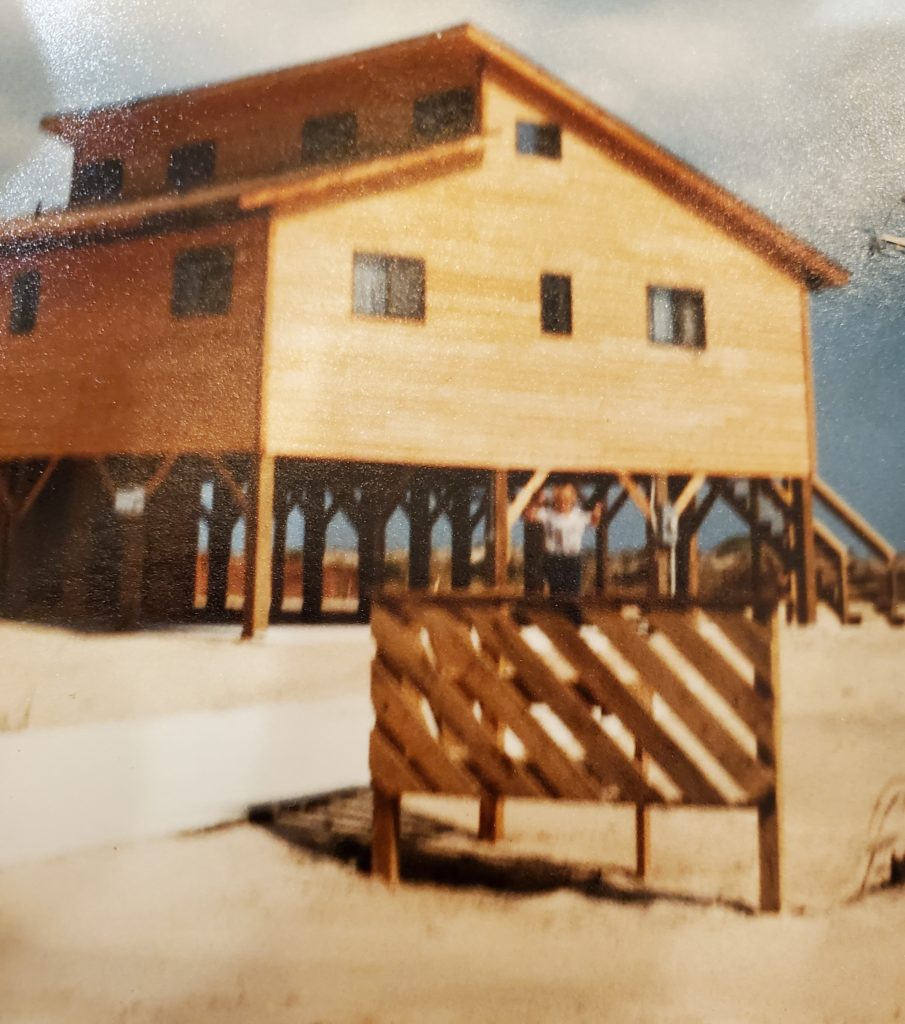The Soul of a Story
I sometimes attach meaning to houses that may be too nostalgic. But houses are where lives are lived, where memories are made, and where the past becomes a marker for understanding the present. And to build them takes a lot of people with different roles.

This house is our family cottage, built in 1980 on a stretch of beach in North Carolina’s Outer Banks, and more specifically, Whalehead Beach in Corolla, NC. It was the twelfth cottage on a three-mile ribbon that would one day be home to hundreds of houses.
This fresh beginning was important to my mother and grandmother, who built the house together. My mother had just lost my father to cancer, and my grandmother was staring at retirement age. Together, they would fulfill a life-long dream and set up a home for collective memories for many generations of our family. The house would remain here until 2005 when we moved it to a new location. (Another topic and future blog article!)
These two women had no idea what they were creating, the memories that would evolve into cornerstones, the lives that would literally be created and lost here. The silly games, the creative traditions, the sunsets, the thunderstorms, the wonderous nature that would be at our doorstep.
Building a new home is a blank slate, a fresh beginning. For writers, that blank page can be scary as hell. For me, I must turn off the editor inside my head and just get words on the page. Writing, like building a house, requires many skills with expertise coming from a variety of sources.
I’ve always loved the essay about the roles of a writer—madman, architect, carpenter, judge—by Betty S. Flowers. The idea of putting on the right hat for the task needed for the particular phase of a project is empowering. Being a madman (or madwoman!) at the beginning of a project, gives me permission to wait to edit. When I’m stuck on a nascent idea that won’t emerge fully formed, I will set the alarm on my phone, close my eyes and just write for ten minutes. I don’t allow myself to open my eyes or correct mistakes or even make any sense whatsoever. I once spent ten minutes with my eyes closed and my hands askew on the keyboard, unknowingly off by one letter. Everything I had written was complete gibberish. But it loosened something inside me, unlocked the flood gates.
The architect is equally important. The person who puts the structure to a narrative, moves sections or paragraphs and generally makes sense of the madman. Knowing that the architect is there, waiting, allows the madman to thrive uninhibited. Then the carpenter comes in to do the hard work, structuring each sentence or paragraph with precision. Finally, the janitor. (I have renamed the judge to janitor. It suits my messy nature.) The janitor is just as the name implies, ready to clean up the clutter. Polish, preen, and tidy up the grammar, word choice, and unnecessary adverbs.
This theory allows me to compartmentalize the writing skills I need when I need them so that the blank page doesn’t feel like building a house in one day. However, even this tidy approach could miss the most important element – the soul of the story. The heart, the love, the connection of the characters, the life that emerges, the lessons learned and shared. The mistakes, the tears, the laughter, and the discussions—both meaningful and utterly meaningless ones. The grieving, the recovery, the celebrations, the quiet time, and the happy chaos. Which is the whole point anyway, right?



Yes…..happy chaos are the perfect words for that place ?